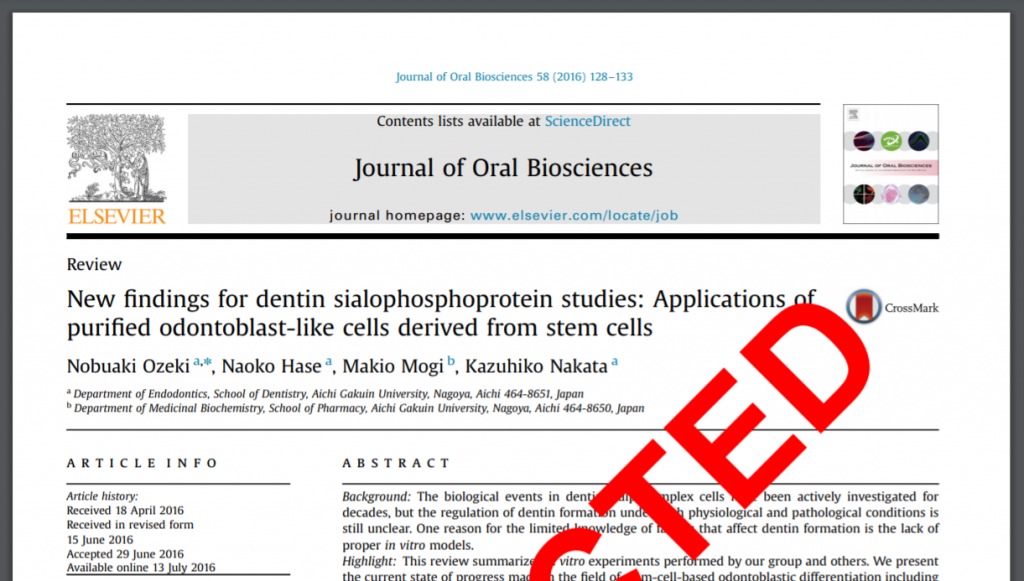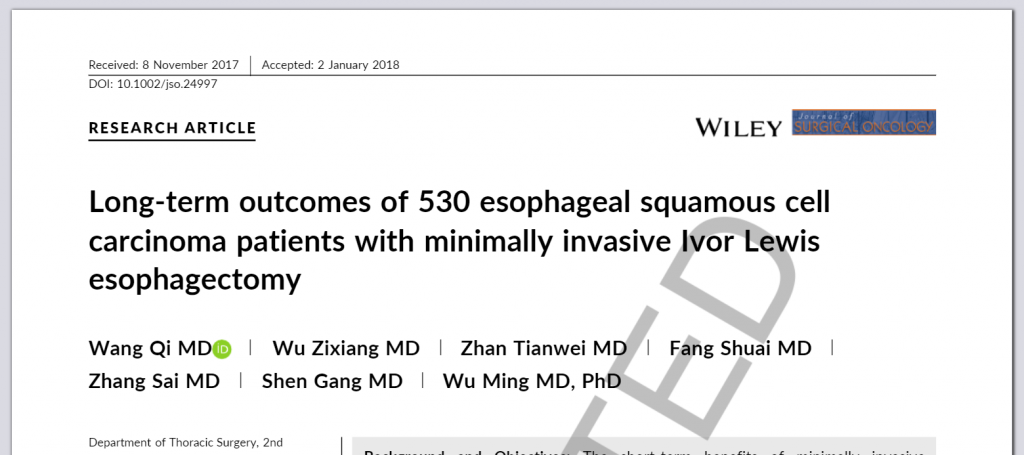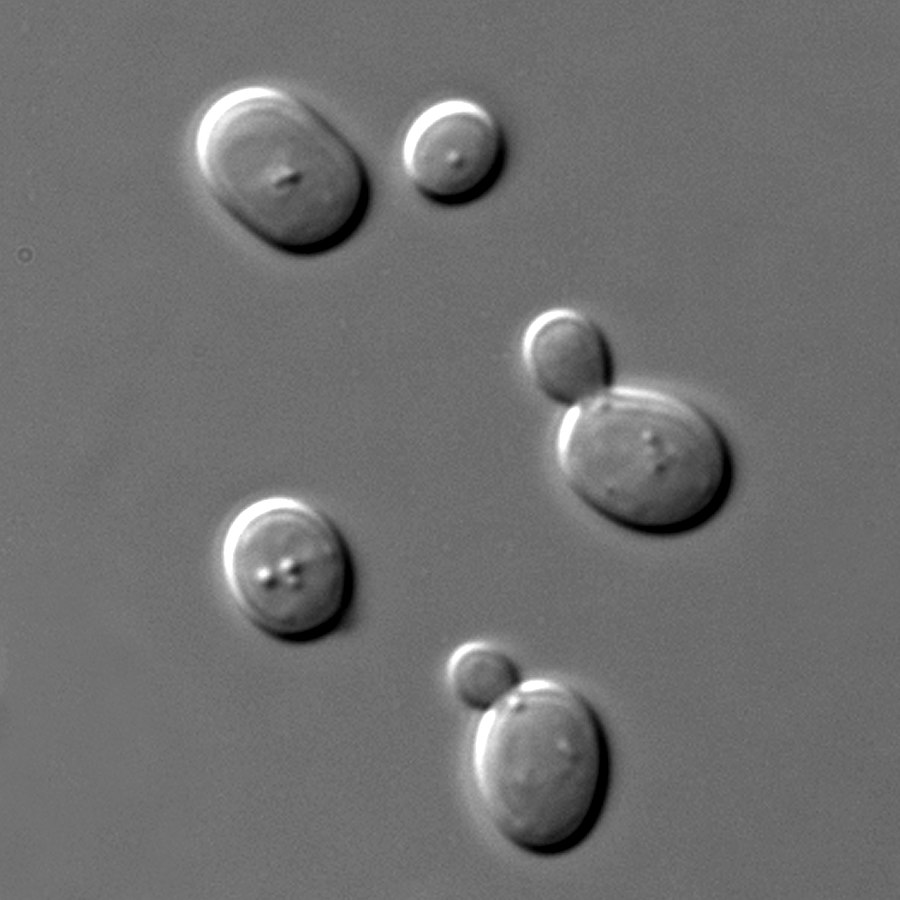
A group of researchers in Japan who study oral stem cells has lost at least nine papers for fabricated data.
We reported on this group, from Aichi Gakuin University in Nagoya, last year after they lost two papers in PLOS ONE for image manipulation. The new retraction notice appears in the Journal of Oral Biosciences, an Elsevier journal, and refers to several other papers that the editors say are to be retracted.
Here’s the notice for “New findings for dentin sialophosphoprotein studies: Applications of purified odontoblast-like cells derived from stem cells,” which was published in 2016:
Continue reading “No original data”: Stem cell researchers in Japan up to nine retractions






